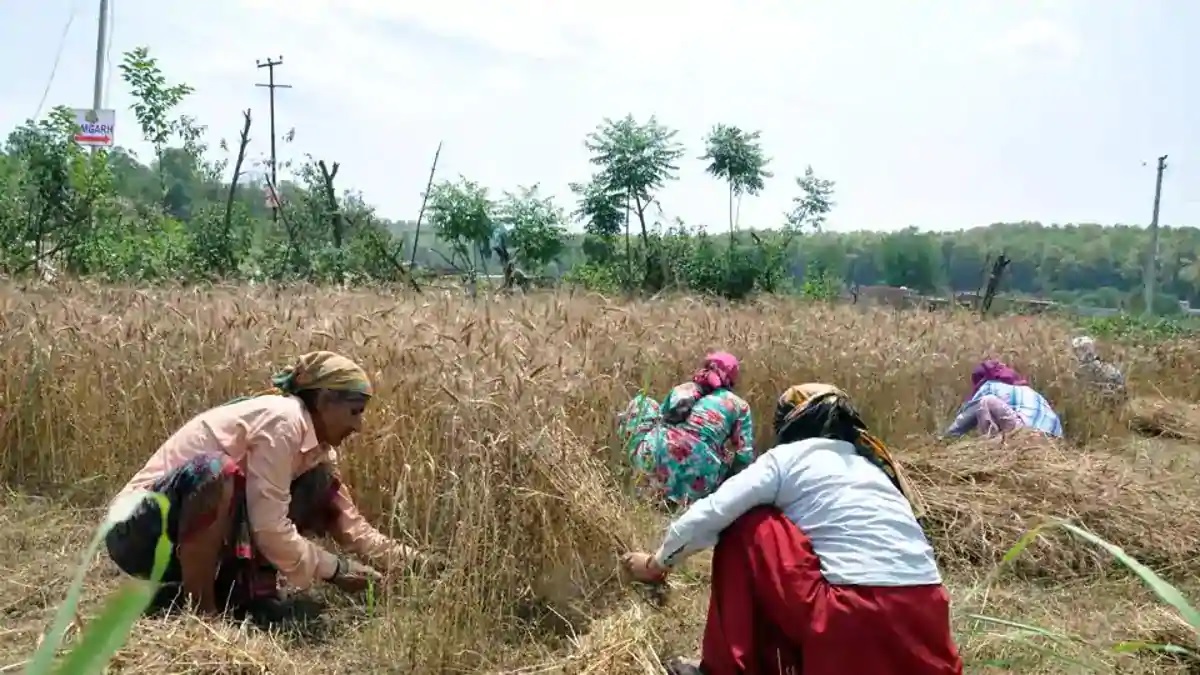
Uttarakhand Chief Minister Trivendra Singh Rawat while speaking at a public event on July 20, expressed his intention of giving land ownership rights to women along with their husbands. The state government is planning to amend the Zamindari Abolition and Land Reforms Act, to give effect to the same.
“Traditionally in the hilly areas, men and their wives are involved in the farming on their land. However, men are largely involved in just heavy labour intensive work like ploughing of the field and remaining about 90% farming related works are done by their wives only. Despite that they don’t have any ownership of that piece of land but their husbands,” Rawat told Hindustan Times.
He further said that since ownership does not lie with women, they are unable to take any loan for any farming related work, if they need to. He said that the status quo is unfair since women do maximum work on fields and yet, are deprived of ownership rights on those lands. This amendment will give them ownership rights on land they work while making them self-dependent and will contribute towards women empowerment.
As per Housing and Land Rights Network, In India around 87.3% of women are dependent on agriculture, and yet not more than 10.34 per cent own land, which is the most important household asset. According to the Agricultural Census 2010-11, of the total operational holdings in India, about 12.78 per cent were operated by women.
As per a research paper of Department of Policy Studies TERI School of Advanced Studies by Prakriti Sharma, titled ‘Evolving Role Of Women In The Context Of Male Out-Migration: A Study In A Hill District Of Uttarakhand’ the asset ownership status of women in Uttarakhand is dismal. The paper states that with agriculture as the primary activity of most households in the state, 60.25% households owned about 17,000 sq.ft. of land or less. 89% women did not have property rights over that land which restricted their control and ownership over land.
The details of the amendment are still not divulged hence, it is unclear as to what kind of ownership rights the state will confer upon a wife, related to spousal property but in any case, it is a move towards gender equality, and holds immense significance in women’s rights jurisprudence and legislation in the long run.
Women’s right to ownership of land in India
Property rights have predominantly been in favour of men leaving much less space for women to acquire or inherit property. Amendments to succession law and property law have created space for women to own land and inherit land, albeit in a limited sense. The Hindu Succession Act was the first law to provide a comprehensive and uniform system of inheritance among Hindus and to address gender inequalities in the area of inheritance. It gave women absolute right of ownership over land. It still lacks in not giving daughters the right to be coparcener or in simple terms having the right to a property by virtue of birth.
States like Kerala, Andhra Pradesh, Tamil Nadu, Maharashtra and Karnataka already have amendments in place for inclusion of daughter as a coparcener by birth in her own right and enables the daughter to have equal share in such coparcenary property. In these states daughters also have the right to dispose of property thus inherited by them.
Women farmers in India
In 2011, the Women Farmers’ Entitlements Bill was introduced in Rajya Sabha, which is now lapsed. It sought to give certified women farmers “equal ownership and inheritance rights over her husband’s self acquired agricultural land, or his share of family property, or his share of land transferred by the Government under land reform or resettlement scheme”. Such ownership did not need to be proved by way of document but a woman would be deemed to have ownership in scuh land and the fact that she is the wife of a particular person is the conclusive proof to claim ownership.
This piece of legislation would have given considerable impetus to women empowerment and attainment of gender equality had it been passed by the Parliament.
Related:
Van Gujjars assaulted by police and forest officials, CJP moves NHRC demanding justice
UP Adivasis oppose land grab attempt, get death threats
AIUFWP seeks place in committee investigating attack on Van Gujjars